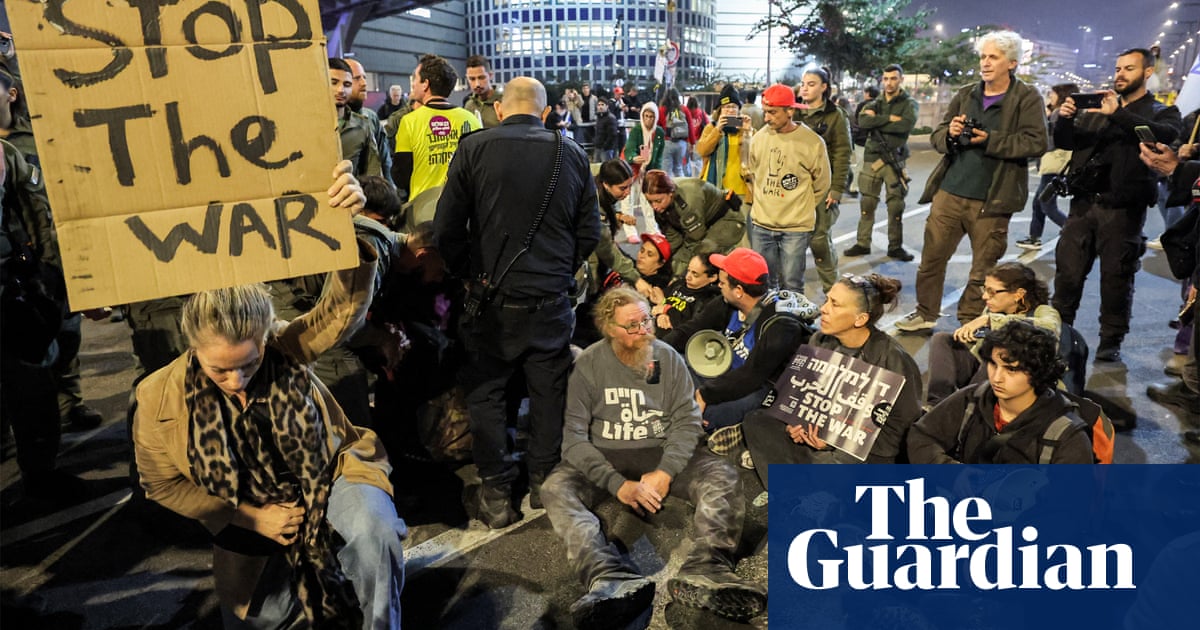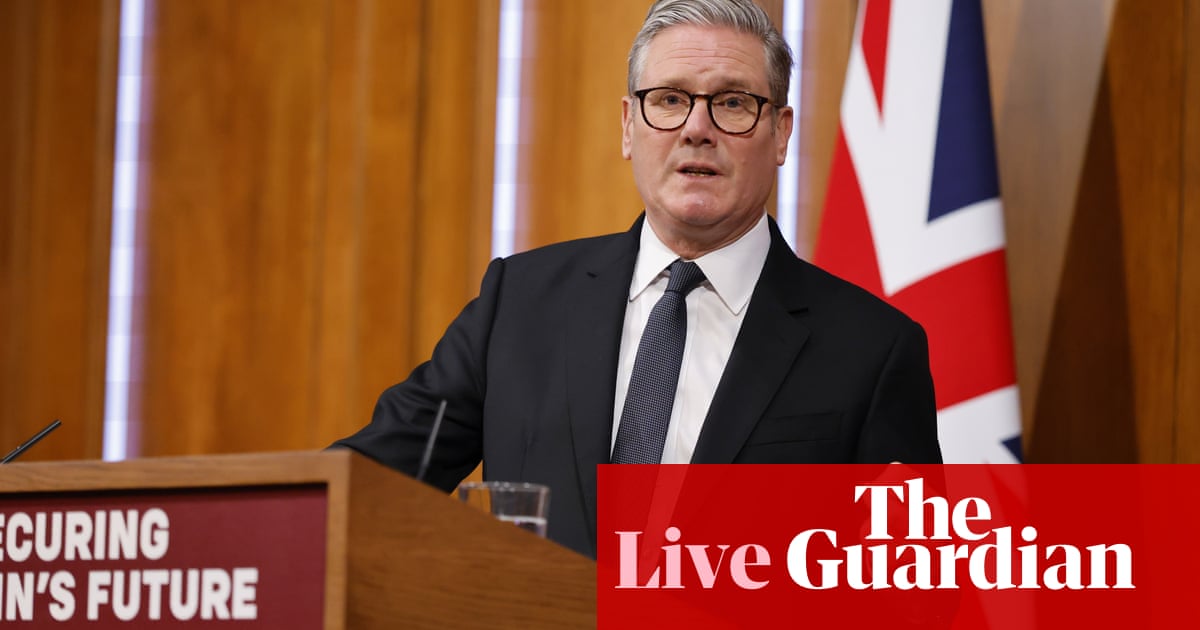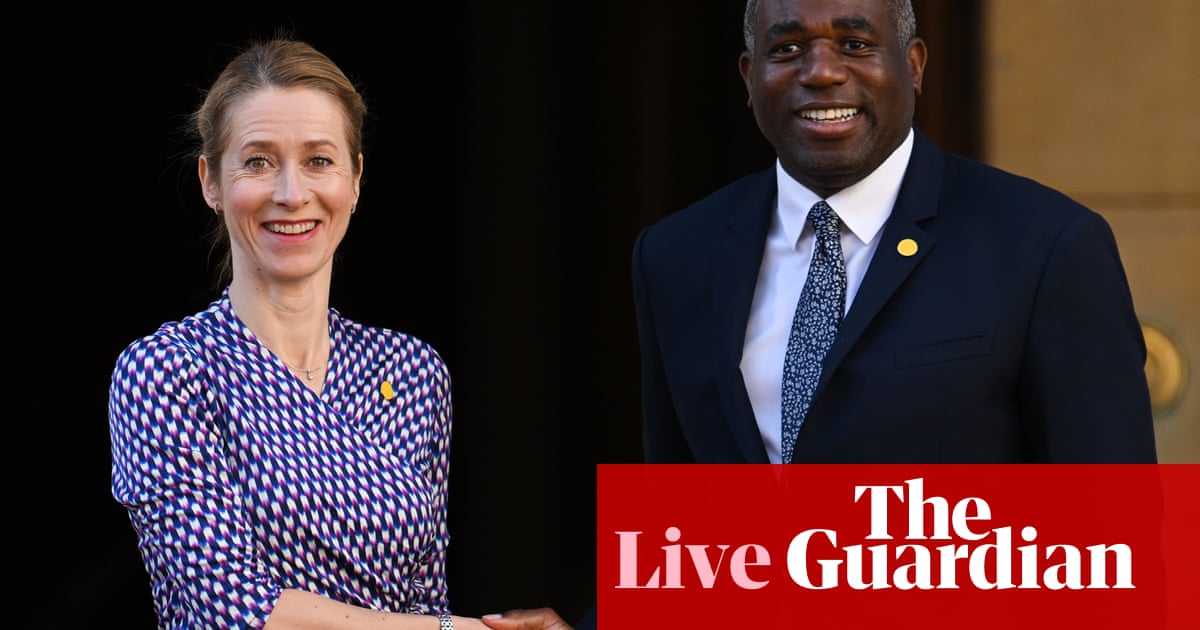Joe Biden has said his administration is on the brink of sealing a ceasefire deal between Israel and Hamas that could pause the war after more than 14 months of fighting.
In a speech in Washington meant to showcase his foreign policy achievements, the US president said on Monday that the contours of the deal matched a “proposal that I laid out in detail months ago”.
Senior Biden administration officials have said they believe the ceasefire deal between Israel and Hamas may still be concluded before Donald Trump’s inauguration next week as the Israeli government has also confirmed progress in the talks.
The US national security adviser, Jake Sullivan, said there was a “distinct possibility” the deal could be reached before Joe Biden left office, as the “pressure is building for Hamas”.
“We are close to a deal, and it can get done this week. I am not making a promise or prediction but it is there for the taking and we are going to work to make it happen,” Sullivan said at a briefing at the White House on Monday.
“I think there’s a good chance we can close this,” he added.
The remarks came after Gideon Saar, Israel’s foreign minister, described progress in talks for a Gaza ceasefire and the release of Israeli hostages amid intensifying indirect negotiations in Qatar attended by Trump’s Middle East envoy.
Saar, speaking at a joint press conference with his Danish counterpart, Lars Løkke Rasmussen, said Israel was working hard to reach a deal.
However, Bezalel Smotrich, a far-right member of the Israeli prime minister Benjamin Netanyahu’s ruling coalition, decried the emerging deal as a “catastrophe for the national security of the state of Israel”.
“We will not be part of a surrender deal that would include releasing terrorist hostages, stopping the war and dissolving its achievements that were bought with much blood, and abandoning many hostages,” Smotrich wrote on X.
“This is the time to continue with all our might, to occupy and cleanse the entire Strip, to finally take control of humanitarian aid from Hamas, and to open the gates of hell on Gaza until Hamas surrenders completely and all the hostages are returned.”
Israel and Hamas have been holding indirect talks for more than a year mediated by Qatar, the US and Egypt but they have previously stalled over issues including the exchange of hostages for Palestinians held in Israeli jails, whether a ceasefire is permanent and the extent of the withdrawal of Israeli troops.
Officials on both sides stopped short of confirming that a final draft had been reached in Qatar – which would still need to be agreed by both sides to bring an end to the war – but described progress after reports of a midnight “breakthrough” in talks attended by Steve Witkoff, Trump’s envoy to the region.
There were conflicting reports on Hamas’s position. Saudi news outlet Al Hadath said it had submitted its final response “without any comments [asking for changes] on the draft of the Gaza agreement” but an official told the Associated Press that a number of issues still needed to be resolved, including details about the withdrawal of Israeli troops and the hostage-prisoner exchange.
The outgoing US president had on Sunday stressed to Netanyahu, the “immediate need” for a ceasefire and a hostage release deal, the White House said in a readout of their conversation.
Biden urged the return of the Israeli hostages still held captive in Gaza with an increase in humanitarian aid enabled by a stoppage in the fighting under the deal, it said, as US officials race to reach an agreement before Trump takes office on 20 January.
His inauguration is widely seen as a de facto deadline after Trump said there would be “hell to pay” unless hostages held by Hamas were freed by that date.
Both sides have agreed for months broadly on the principle of halting the fighting in return for the release of hostages held by Hamas and Palestinians held in Israeli prisons. Hamas has, however, always insisted the deal must lead to a permanent end to the war and an Israeli withdrawal from Gaza, while Israel has said it will not end the war until Hamas is dismantled.
On Saturday, Witkoff, after meeting the Qatari prime minister, Sheikh Mohammed bin Abdulrahman Al Thani, flew to Israel where he met Netanyahu, who, following their discussion, sent the director of the Mossad intelligence agency, David Barnea, to Qatar’s capital “in order to continue advancing a deal to release our hostages”.
The talks included Barnea, Qatar’s prime minister, as well as Witkoff and officials from the outgoing US administration.
A Palestinian official close to the talks told Reuters that information from Doha was “very promising”, adding: “Gaps were being narrowed and there is a big push toward an agreement if all goes well to the end.”
The Israeli newspaper Haaretz reported that an Israeli official denied a final draft had been sent, although other sources confirmed that “a significant development occurred in the negotiations overnight into Monday”, adding that they believed the agreements could be finalised soon.
Just one brief ceasefire has been achieved in 15 months of war, in the earliest months of fighting.
Hamas insists that any negotiations to secure the release of hostages must form part of a comprehensive pact to end the hostilities in Gaza, while Netanyahu is seeking a more segmented agreement, aiming for a deal that would lead to the liberation of some, though not all, hostages, while simultaneously preserving Israel’s prerogative to recommence hostilities against Hamas upon the deal’s expiration.
Israeli and western intelligence services estimate that at least one-third of the remaining 95 or so Israeli captives in Gaza are dead.
Palestinian officials have indicated that Israel continues to block the release of 10 specific prisoners. These include Marwan Barghouti, the leader of Tanzim, Fatah’s armed faction, and Ahmad Saadat, the head of the Popular Front for the Liberation of Palestine, who was behind the assassination of the Israeli minister Rehavam Ze’evi in 2001, among other high-ranking members of Hamas and Islamic Jihad’s military branches.
To avert a potential stalemate in the negotiations, an agreement has been reached to defer discussions on the release of these contentious figures until after the initial phase of the deal, sources who took part in the negotiations said.
The families of the hostages who have been protesting against the Israeli government for months fear the optimism for a deal that now more than ever seems close may be hindered by the far-right parties of Netanyahu’s coalition that refuse to accept an agreement until Hamas is completely defeated.
The Israeli finance minister, Bezalel Smotrich, head of one of the hardline nationalist religious parties in the ruling coalition, on Monday denounced the agreement being worked out in Qatar as a “surrender” deal.
“The deal that is taking shape is a catastrophe for the national security of the state of Israel,” Smotrich said.
Conditions in Gaza, where almost all of the population of 2.3 million are living in makeshift accommodation, are deteriorating in the face of cold and wet winter weather, which has caused flooding.
Israel’s offensive in Gaza has killed more than 46,500 Palestinians and wounded 109,571 since 7 October 2023, the Palestinian territory’s health ministry said, following Hamas’s attack on Israel in which 1,200 Israelis were killed and 250 taken hostage.










